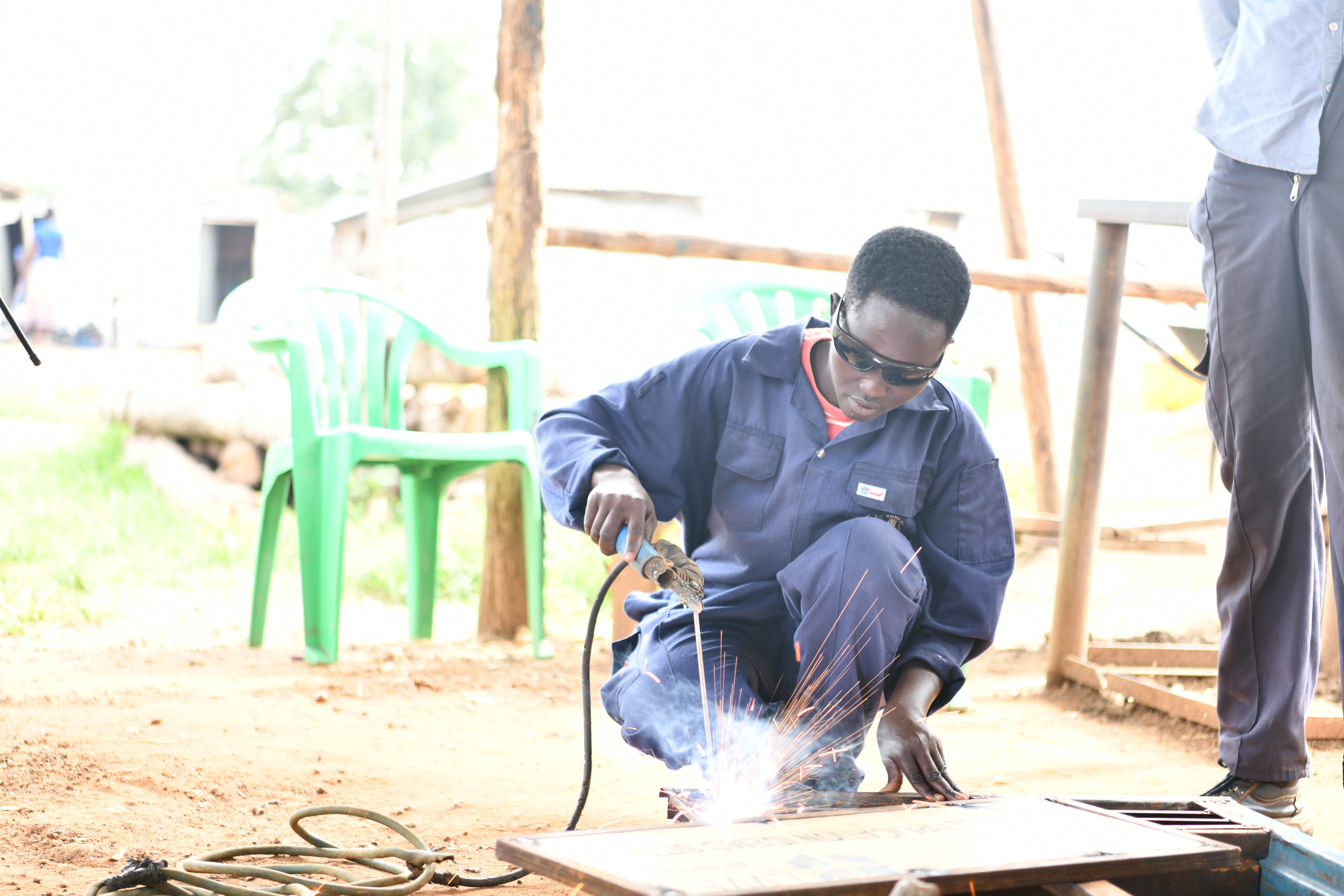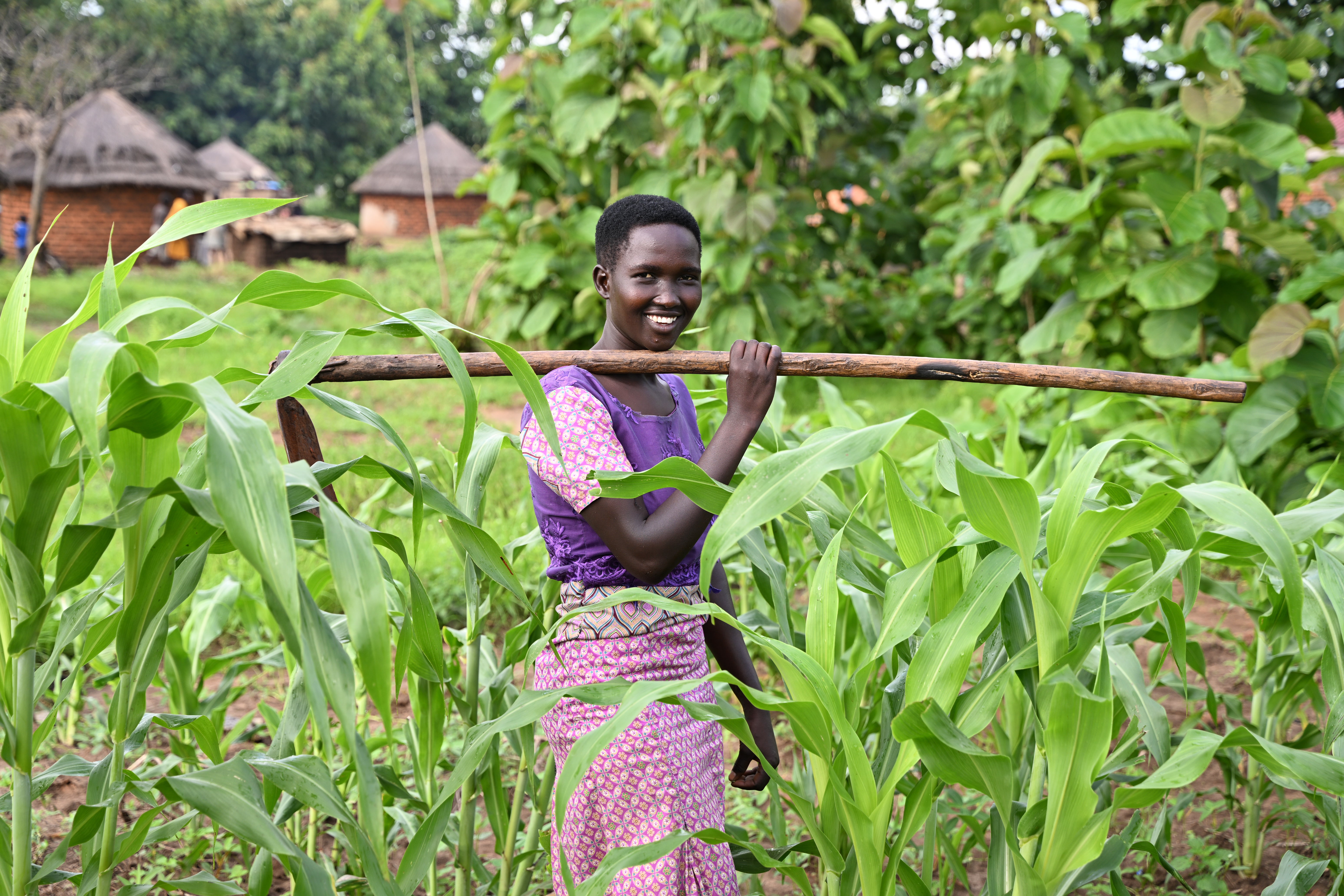Fostering social cohesion through refugee projects; the untold stories of host community empowerment
Date:

Veronica Konga, a 23-year-old single mother of two in Adjumani district, Uganda, knows the sting of hardship. Forced to abandon her education at a young age due to lack of school fees, Veronica got married at the age of 20. For three years she endured an abusive marriage until she gathered courage to move away. With no education nor means of livelihood, her life revolved around subsistence farming on distant land where she had to walk on foot for an hour to access the farm. But, in 2023, a glimmer of hope arrived through an unexpected source: a project designed to benefit both refugees and host communities.
Adjumani, like many Ugandan districts hosting refugees, faces socio-economic struggles. Veronica's story exemplifies the challenges these communities share. Adjumani hosts 13.3% of Uganda's total refugee population. Uganda's progressive refugee policy mandates a 70:30 project benefit split, ensuring host communities like Veronica’s aren't left behind. It’s through this policy initiative that projects like the Leadership Empowerment Access and Protection (LEAP) project, spearheaded by UN Women with funding from the Government of Norway, are paving the way for transformative change for both refugees and host community members.
UN Women, through its partner Refugee Law Project's outreach, identified Veronica as a vulnerable member of the host community in Ege village (neighbouring Nyumanzi Refugee Settlement). This enabled her to receive a life-changing opportunity - second-chance education in metal fabrication; a trade she saw not only as a means of livelihood but also as a beacon of hope.
Veronica's choice was driven by practicality. "There is money in metal fabrication, and a ready market," she explains. The impact was immediate. Even before completing the program, Veronica's newfound skills allowed her to sell her first object - a window. These earnings, a lifeline in her time of need, allowed her to secure medical care for her sick child.

Yet, Veronica's journey is not without its hurdles. In a community where access to electricity remains a luxury, the dream of establishing her own workshop faces daunting challenges. The use of generators as an alternative power source is expensive often forcing Veronica to grapple with financial constraints, hindering her ability to fully unleash her potential.
Veronica's story isn't just about personal triumph. It's a testament to the power of refugee projects fostering social cohesion. By including host communities, these initiatives create a sense of shared benefit, bridging the divide between refugees and host communities but also nurture a sense of belonging and shared destiny. Veronica's success story becomes an inspiration for others, fostering a spirit of collaboration and progress within the community.
As Veronica looks ahead to the horizon, her vision is clear. "I look forward to perfecting my trade," she says, "establishing my own workshop, and mentoring other girls." It's a vision rooted in the belief that through empowerment and collective action, we can forge a path towards a brighter, more inclusive future for all. In Veronica's unwavering resolve, we find hope—a beacon of light illuminating the way forward in the journey towards social cohesion and unity especially between refugees and host communities.